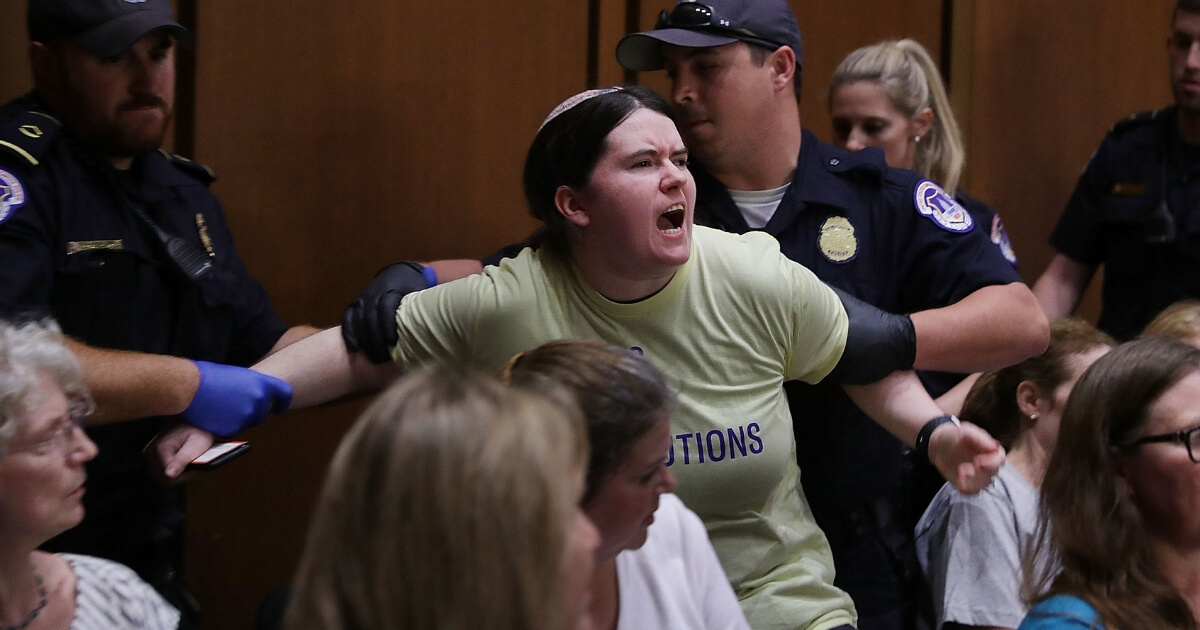
This Isn't the First Time Accusations Started Flying Immediately Before Supreme Court Justice Confirmation
It’s easy to make comparisons between the accusations levied against Brett Kavanaugh and those which faced Supreme Court Justice Clarence Thomas as his 1991 confirmation moved toward a vote.
However, a deeper look at them reveals just how close the two instances really are.
Newsbusters is a publication of the Media Resource Center, which means that they remember what it was like during Thomas’ confirmation in the early autumn of 1991 — 27 years ago.
One thing they noted in their November 1991 newsletter was one blatant similarity — both men were supposed to be easily confirmed by the Senate, and both men had the accusations against them “leaked” after their confirmation hearings were over.
They also noted the role that the media played in amplifying the accusations.
“Just when Judge Clarence Thomas looked to be a shoo-in for Senate confirmation, someone with the Senate Judiciary Committee leaked an affidavit from Anita Hill charging Thomas with sexual harassment,” the 1991 newsletter read. “If, as suspected, Democrats did the leaking, it could clearly be characterized as hardball politics or playing dirty.”
“But when network television covered the hearings live over the Columbus Day weekend, Democrats were not subjected to tough questioning about their possible role in the leak, or how committing this crime was a new low in playing dirty. Instead, reporters accused the Republican committee members of playing hardball politics, while criticizing the Democrats for not being tough enough on Thomas, a MediaWatch Study has documented,” the newsletter continued.
“The study covered all ABC, CBS and NBC news broadcasts (both live coverage and normal shows) between the start of the hearings at 10 AM EDT on Friday, October 11 through the Wednesday, October 16 morning programs. The study also covered all CNN and PBS live coverage, plus CNN’s World News. The amount of time devoted to live coverage varied: CNN and PBS showed it all while CBS, which cut out for baseball Friday night and for football on Saturday and Sunday, offered the least.”
Well, at least CBS had its priorities. However, its nightly news anchor at the time — Dan Rather — may have had the most transparent line of the entirety of the coverage: “Would you agree, or would you not agree, that one person’s leak is another person’s public service?”
NPR’s Nina Totenberg echoed similar sentiments when she said “the history books are full of important and historic events that were the result of news leaks … (Watergate) would have just been a third-rate robbery if there hadn’t been a lot of leaks disclosing what it had all been about. So, news leaks — I don’t want to be defensive about this — but news leaks aren’t always bad.”
PBS’ Paul Duke, meanwhile, called leaks an “all-American institution.”
The media’s complicity with the Democrats also ran deep, as it does now.
“In total, the five networks’ anchors, reporters and affiliated analysts singled out the Republicans for cynical or hardball tactics on 28 separate occasions,” the MRC reported.
“On another twelve occasions, the network personalities complained that committee Democrats went too easy on Thomas.”
Whenever accusations like these are made, the human instinct is to believe the accuser. Yet, when the timing is this felicitous, particularly for a Supreme Court nomination, what are we to make of it? In the case of Anita Hill, even if one doesn’t believe it, there was still corroboration. In the case of Brett Kavanaugh, all we have is a story where the alleged victim can’t even pin down the year it supposedly happened.
This has happened before, and it was every bit as much of a stunt then. It’s an object lesson Republicans would do well to remember.
Truth and Accuracy
We are committed to truth and accuracy in all of our journalism. Read our editorial standards.
Advertise with The Western Journal and reach millions of highly engaged readers, while supporting our work. Advertise Today.












